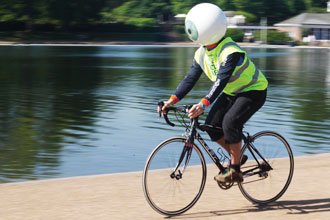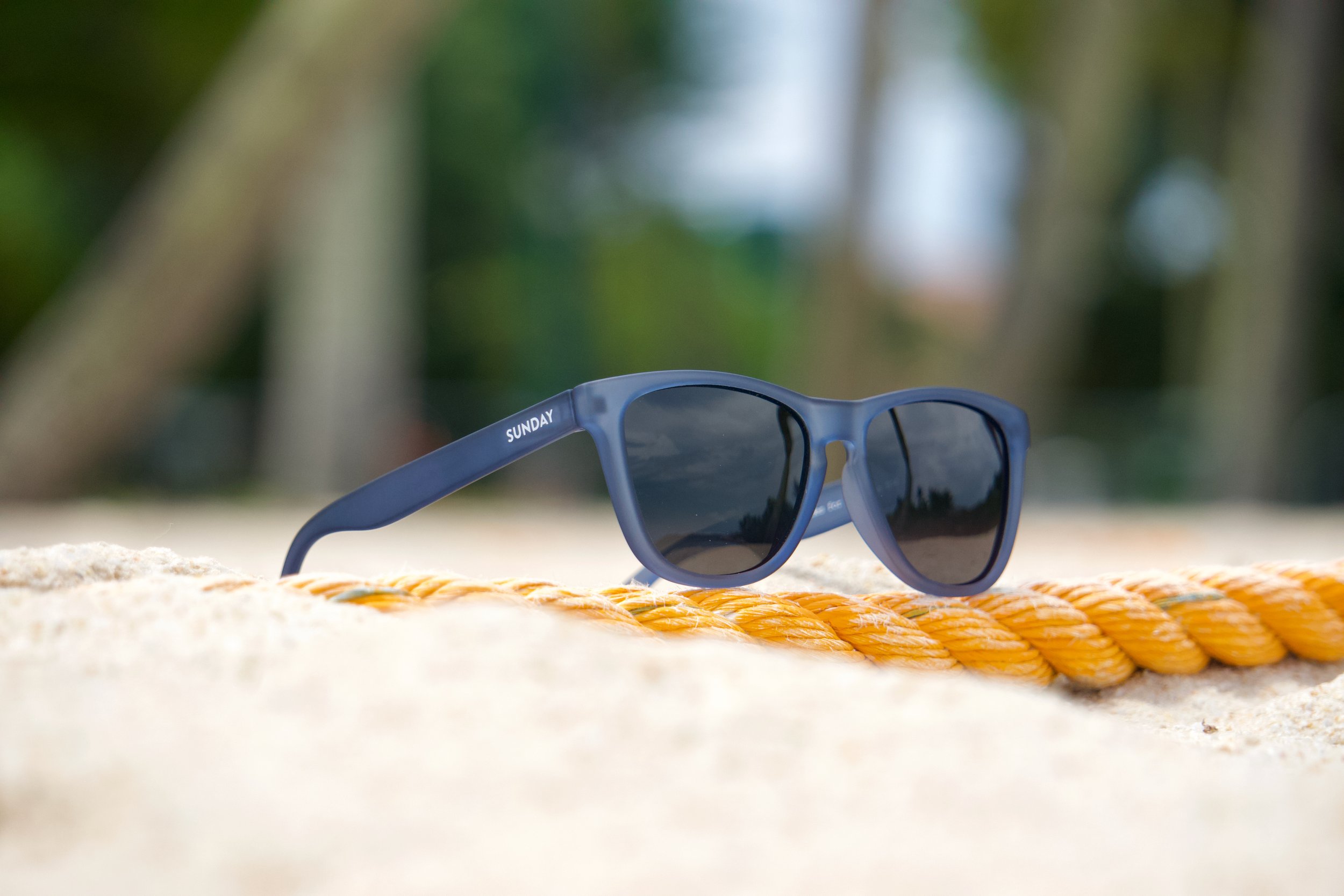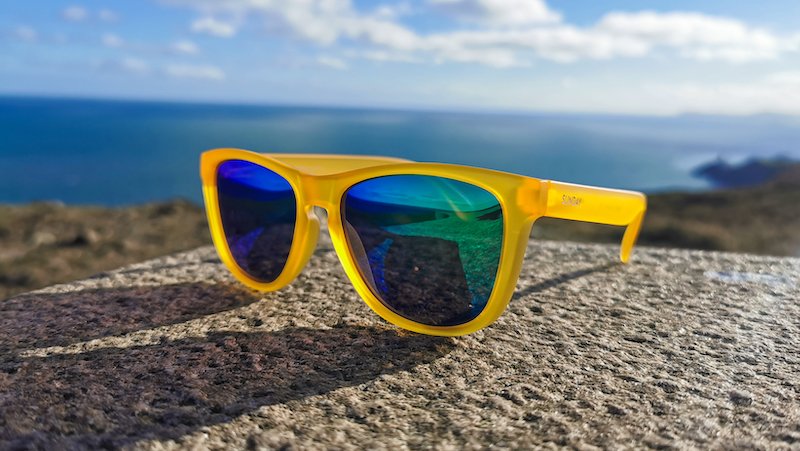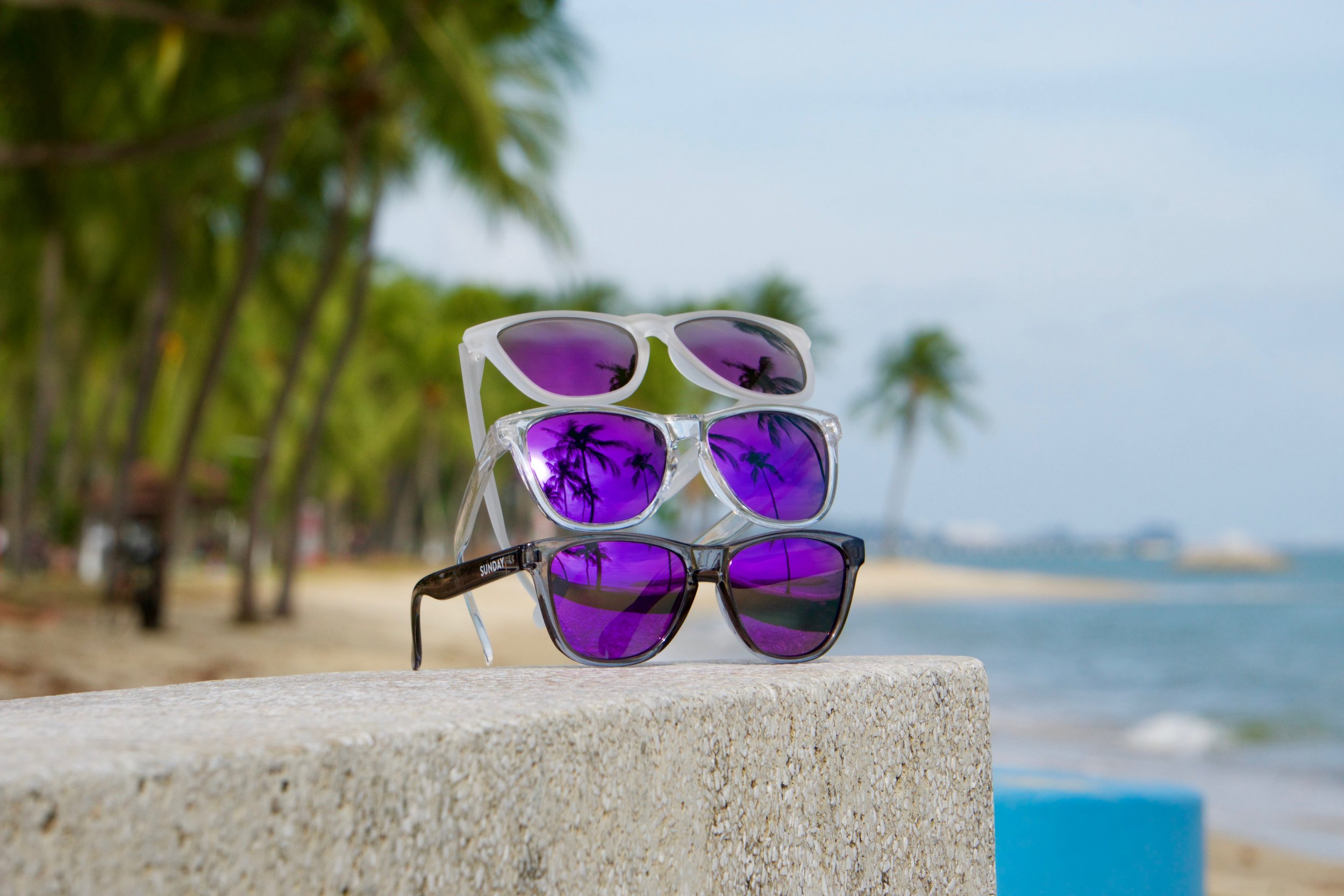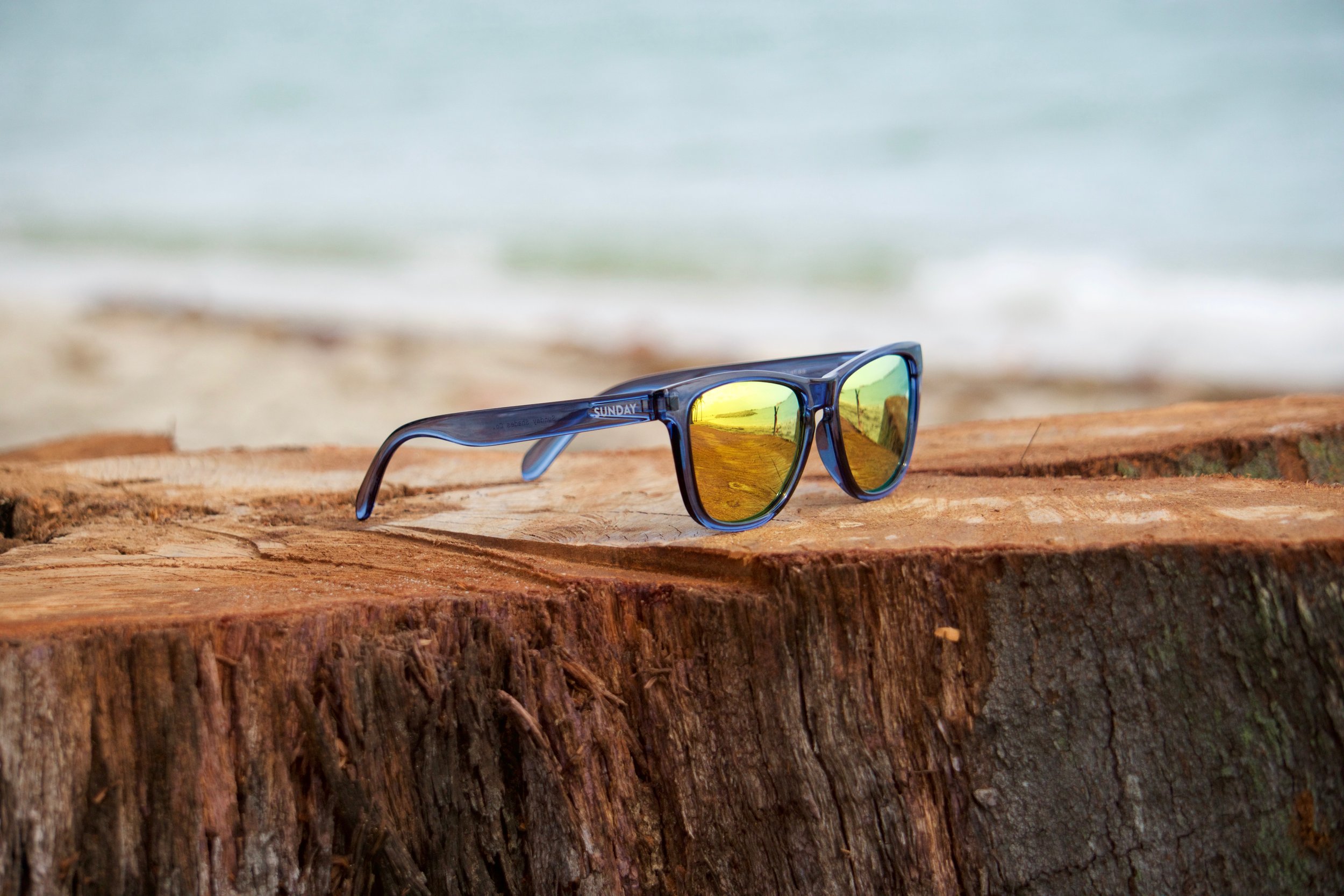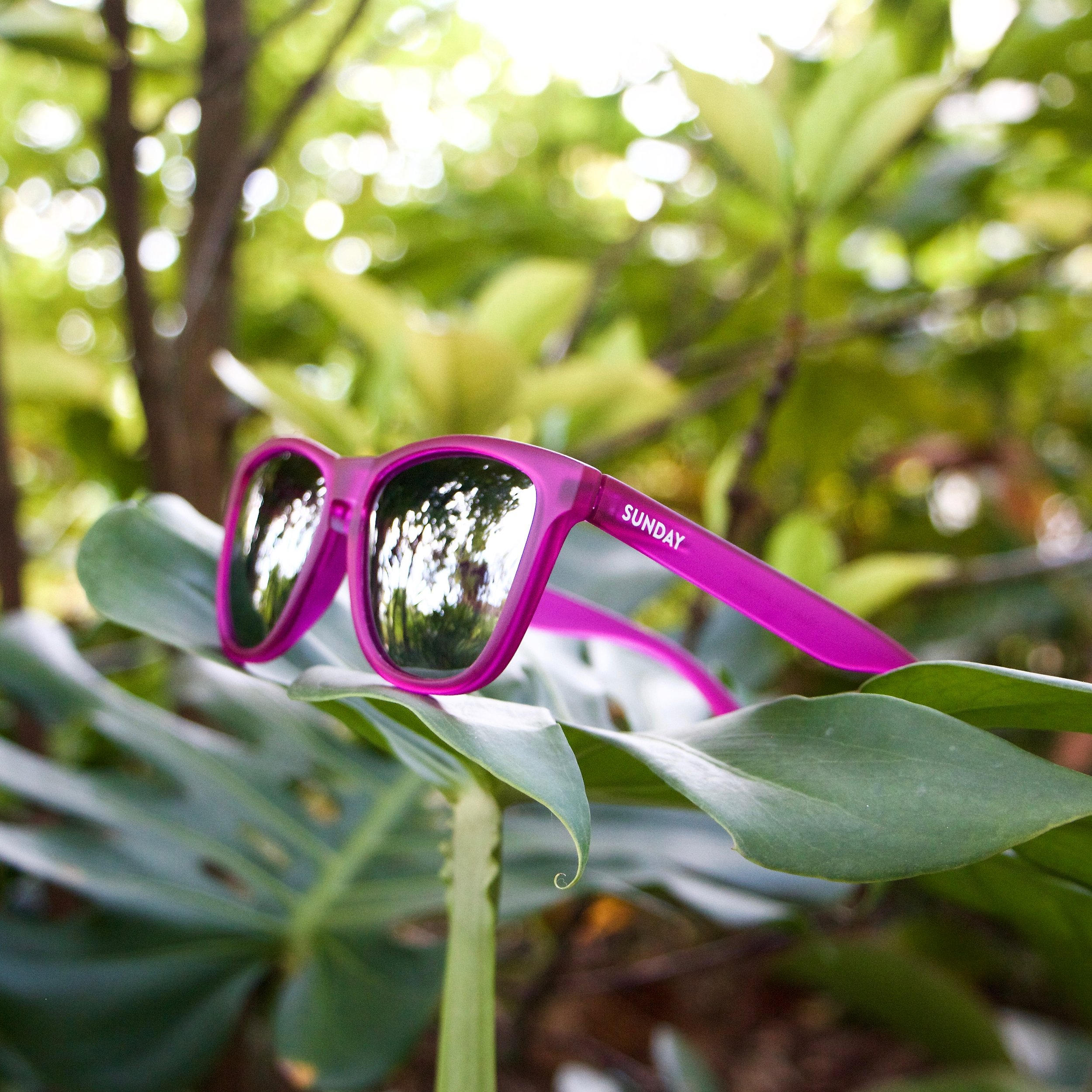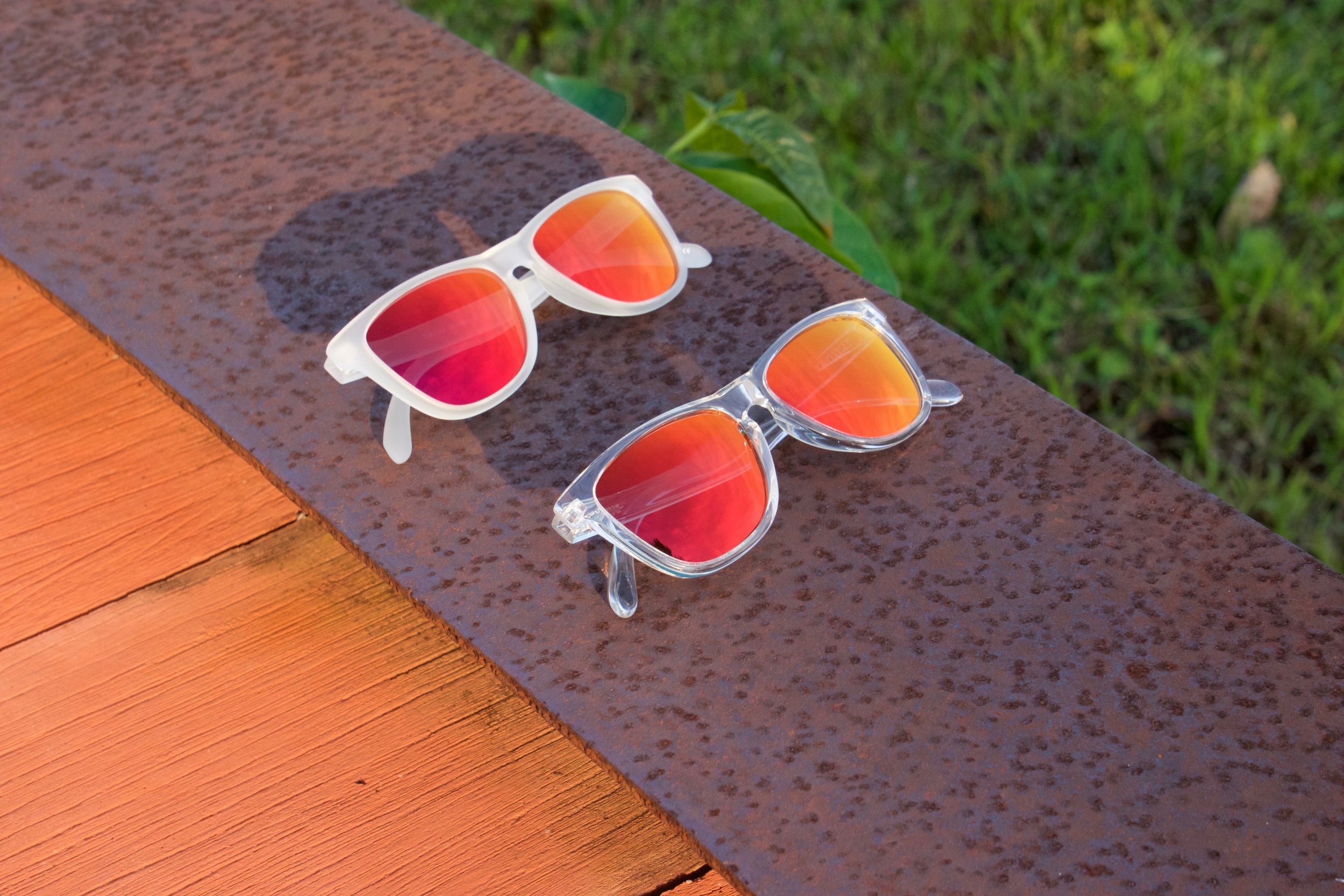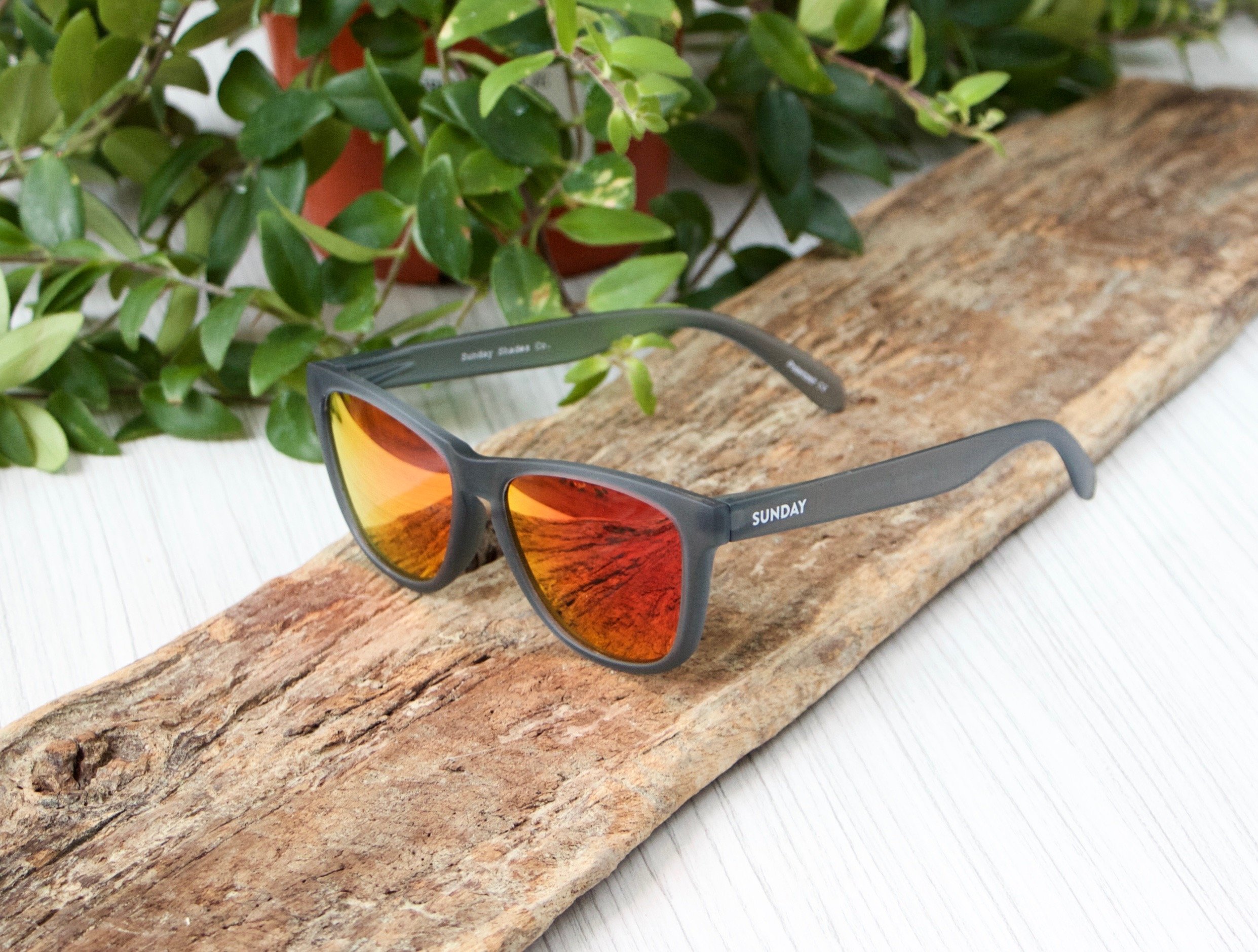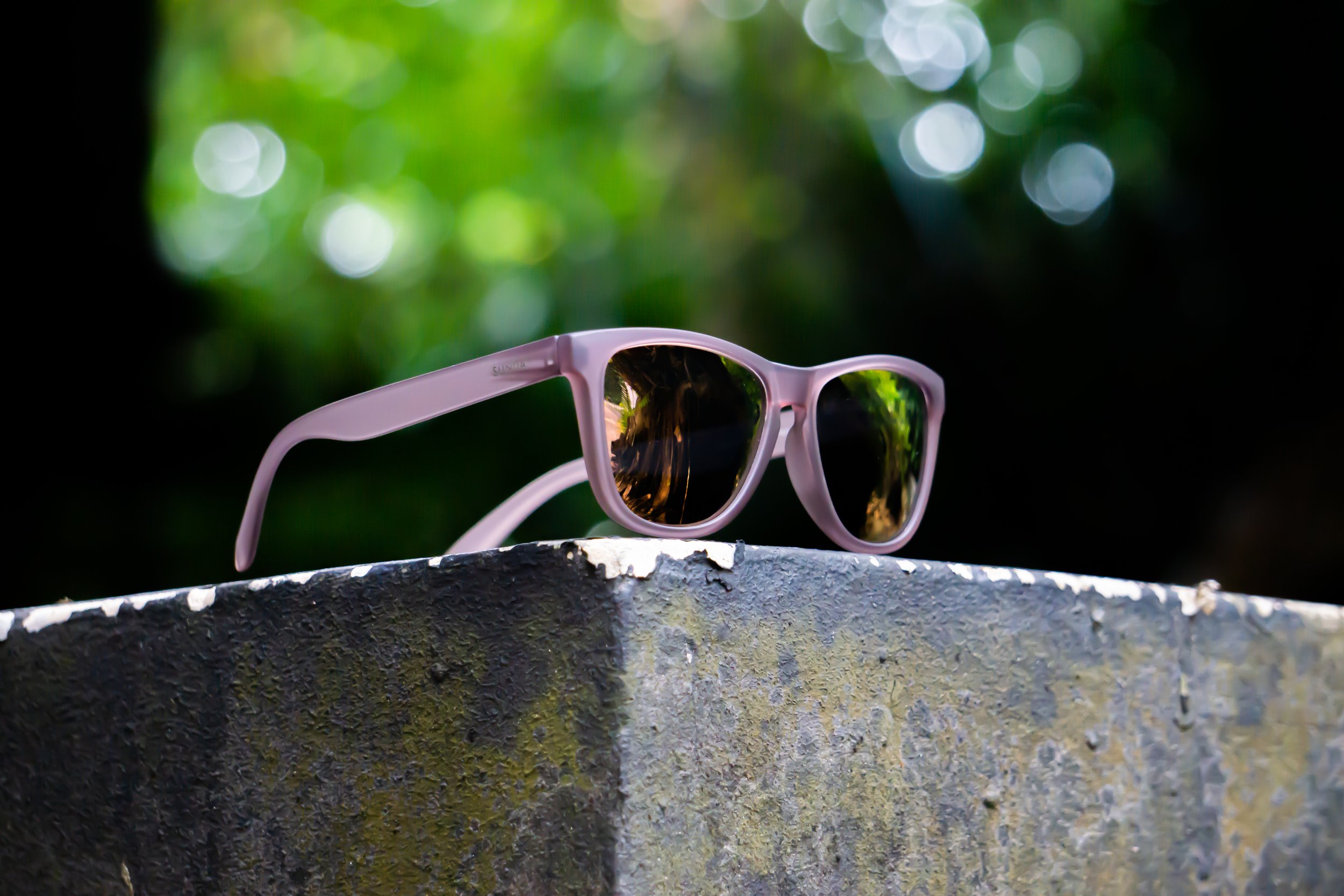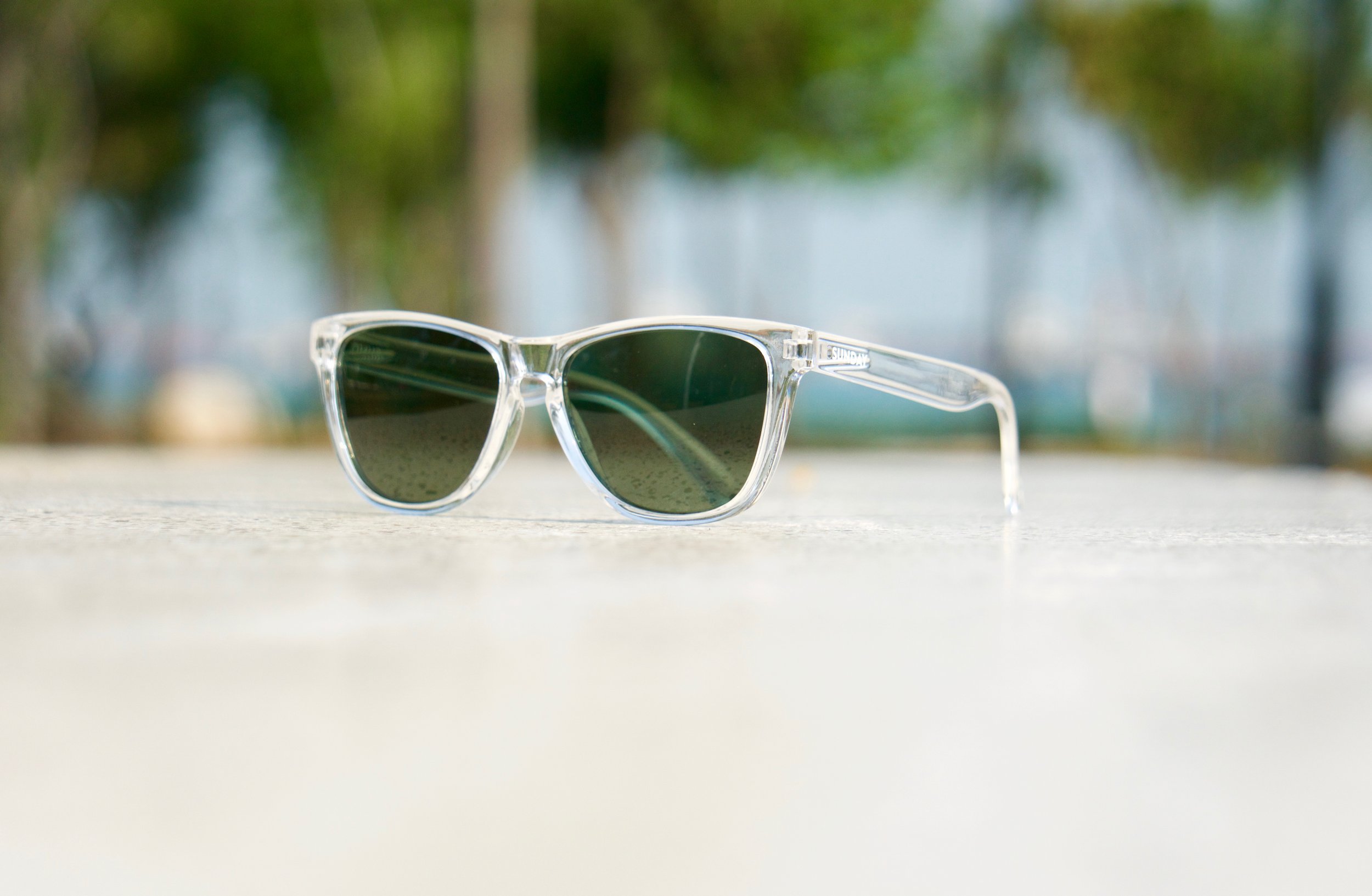Cycle For Change x The Lens Men
#TakeCharge: Energise Your Eyes On The Bike!
We’re proud to be the eye care partner for Senoko Energy’s #CycleForChange, an initiative to clock 1 million total kilometres cycled, which will eliminate 187,000kg of carbon emissions, equivalent to taking about 495 cars off Singapore’s roads. [Click to sign up with free registration, the event pedals through 22 April!]
As you’re observing all traffic laws and practising road safety, keep eye care in sight to enjoy healthy vision on the bike — they will keep you safer while cycling, and will better preserve your sight off the bike and for the road of life ahead. Here are our cycling eye care tips — read on to learn how they can help you win a pair of Sunday Shades polarised sunglasses!
Get Shady: Always Wear Sunglasses With UV-Protection!
Without the physical barrier of sunglasses, foreign objects like dust, grit, pollen, even insects and more can fly straight into your eyes and cause irritation — bits like sand can cause abrasion or worse, a tiny particle of metal can even tear your eye surface.
Also, you may not experience it now, but prolonged exposure to ultraviolet light can cause damaging effects later in life. The two most common conditions are more severe and earlier onset of cataracts and age-related macular degeneration, the leading cause of vision loss among older adults.
Go Polarised
Polarised lenses block all glare from entering your eyes, especially useful when harsh sunlight is reflecting off long stretches of roads and paths. The most immediate risk of bright sun glare comes from sudden squinting and distractions. Click to see how you can win a pair of Sunday Shades polarised sunglasses with stable, no-bounce fit that’s perfect for outdoor activities!
Pop Eye Drops During Rides
Wind blowing and flowing into your eyes when cycling evaporates their tear film, which causes discomfort and when prolonged, damage to eye surfaces. At best, “dry eye” syndrome is an annoyance and at worst, it can lead to scarring, infection and temporary vision loss. Dry eye from cycling can also contribute to the strain and fatigue you may feel from working at digital screens all day. Artificial tears eye drops such as Systane Ultra and Evolve are without preservatives, and naturally re-wet your eyes just like normal tears. Dab them on during cycling breaks or post-ride.
Get Fit For Your Best Vision Correction For Getting Fit On The Bike With Regular Eye Checks
Clarity is paramount when cycling, especially if you’re a night rider or start your rides pre-dawn — and can make all the difference in spotting road hazards and other moving vehicles earlier for your quickest reaction. This is why you should always ensure your prescription is at its most updated and accurate. Properly eye-equipped, you also won’t strain your eyes as much trying to read road signs and watching out for potholes and scampering critters! An optometrist or optician will fit you with the best vision correction for your cycling needs:
Choose a frame that fits stably and comfortably on your face and under your helmet, such as those with non-slip ear tip and nosepads, and are lightweight. You can consider curved eyewear for a more aerodynamic and snug fitting
Most sunglass frames and sporty optical frames can be fitted with prescription sun and polarised lenses if you don't like using contact lenses
Presbyopes (those needing help with reading vision) can consider progressive lenses to easily read bike computers and fitness watches on the go
Consider photochromatic lenses that darken and lighten with the intensity of UV light in the atmosphere, which will also offer some relief from the sun’s glare
Consider daily contact lenses to wear and discard on cycling days, so you don’t have to worry about proper cleaning routines and residue building up over the lens’s life span. Silicone hydrogel contact lenses provide the highest hydration levels for your eyes
BONUS! Cycling is a fun and great way to armour kids against myopia!
The World Health Organisation recommends two hours of outdoor activity daily to stem myopia progression by up to 20% — just make sure they’re also practising sound eye care habits on the bike!
Click To See How You Can Enter Our Sunday Shades Giveaway #CycleForChange!
Blue Light May Cost You Your Sight
What you may know about age-related macular degeneration (AMD):
A common eye condition that's the leading cause of vision loss for people age 50 and above. It's a disease that damages the macula, a small spot near the centre of your retina - the fragile tissue needed for central, sharp vision and for seeing objects straight ahead. Research has found that smoking and genetics are high contributing risk factors and now, there is a new focus on blue light and its correlation to AMD.
What is blue light?
Light enters our eyes in various wavelengths along the visible spectrum, containing many colours such as red, green and blue.
Where does blue light come from?
Blue light is everywhere! Sunlight emanates 25 to 30% of it, and the rest comes from items we interact with throughout the day such as TV and computer screens, digital devices (smartphone and tablet screens) and fluorescent LED lighting.
What happens when blue light meets your eyes?
The high frequency wavelength of blue light means it reaches deeper into our eyes, cumulatively damaging the retina over time as our eyes' melanin - natural filters - aren't enough protection against it. That eye strain, blurry vision, dry and irritated eyes and headaches you feel after working on your computer or smartphone for long stretches? That's Computer Vision Syndrome, which has now overtaken Carpal Tunnel Syndrome as the number one computer-related complaint. As we grow older, we lose melanin and usually by age 65, half the protection is gone, which leaves us even more vulnerable to AMD caused by blue light.
Some blue light is good!
Only certain wavelengths of blue light have detrimental effects on the eye - blue-turquoise light is essential for vision and pupillary reflexes. It's also beneficial to general body health and it helps regular our biological clock (circadian rhythm) which controls certain hormonal releases and our sleep cycle.
How do we protect our eyes from blue light?
Our easiest and most comfortable way blue light defense is to wear lenses with special coating that filters out these harmful wavelengths, preventing a great amount from reaching the eyes. The option to add on this anti-blue light coating is available for all ophthalmic lenses from good lens companies, such as Essilor's Crizal Prevencia coating or Hoya's BlueControl. Even if you do not need vision correction, plano (no prescription) lenses with anti-blue light coating can be dispensed by a licensed optician or optometrist with a frame of your choice or simply buy off-the-shelf frames with anti-blue light coating lenses.
Highlight your interest in such lenses to your eye health professional so they can further educate you on the product and may have a demo set for you to try. While the subject of the best protection for your eyes is on your mind, you may also consider getting UV protection coating on ophthalmic lenses, together with the anti-blue light coating.
Written by:
Dr. Dion Koh - Bachelor of Medicine/Bachelor of Surgery, Monash University; Diploma in Optometry, Singapore Polytechnic
School's Out! Play, But Beware Of UV Rays
It's one of your kids' most favourite times of the year - school holidays! That means more outdoor activities and maybe even a holiday, and while the extended time away from books and homework is a great respite for their vision, it's important to make sure that their precious eyes are well taken care of when exposed to dangerous UV rays prevalent in the atmosphere.
UV rays are harmful components of sunlight - just as they can cause skin cancer, they also damage the retina, cornea and other parts of the eyes. Over time, this can lead to cataracts or macular degeneration, an irreversible ailment that leads to eventual blindness. New research has shown that the lenses of children's eyes allow as much as 70% more UV rays to enter as compared to an adult, which makes it even more necessary to ensure they have the proper protection.
Our optometrists share tips on how to take better care of your kids' eyes while they're having fun in the sun (adults should take note of these tips and use them, too!).
Allain: "The easiest way is to wear proper sunglasses with 100% UV protection - caps and umbrellas will help, but sunglasses are still the most effective way to keep harmful rays out of your kids' eyes." Just because it's a cloudy day doesn't mean UV rays aren't present.
Shawn: "Go outdoors as research shows that natural light can reduce the progression of myopia (shortsightedness). If your kids wear glasses, consider getting them Transitions lenses which will automatically darken according to the intensity of UV rays in the atmosphere."
Shahirah: "If your child is into sports, get him or her to wear protective goggles to prevent any risk of eye injury. Goggles are also recommended for the pool to prevent chlorine from stinging the eyes, and polarised lenses will cut out significant glare. Also, make sure they avoid touching the eyes after getting their hands dirty while playing with sand or in a field, for example, which can cause infections. Help them make it a habit to wash their hands with soap before touching their eyes, which can be very sensitive."
Hui Qi: "Being outdoors more often playing and perspiring can fog up and smudge lenses and get glasses dirty easily. Remind your kids to wash their spectacles with soap and water every night and wipe it clean with a lens cloth to better maintain them and ensure clear vision when wearing them."
Farah: "For the occasions that your children will spend time indoors reading, watching TV or playing computer games, help them remember to take vision breaks in between to relax the eye from strain."
Hope everyone enjoys the rest of their school holidays, and if new glasses are needed, our in-house Moonlight frames are a great affordable option for school kids, who will appreciate how lightweight and flexible they are! They're 30% off during the Great Singapore Sale, with an additional $50 off lenses.




